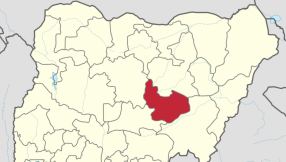Fulani herdsmen have launched two attacks on Christian worshippers in Nigeria's Kaduna State in the Christmas period.
In the first, four people were killed 10 injured in Nimdem village just before Christmas. A press statement released by the Southern Kaduna People's Union said: 'We have once again come under unprovoked and gruesome attack two days before Christmas.'

The statement said: 'This has left us wondering why people who had gathered peacefully for joyful Christmas carols in their village should be gunned down for no reasons.'
Local pastor Gideon Mutum told International Christian Concern (ICC) it happened 'during an interdenominational carol that comes every Christmas with Bible quiz, drama, songs and preaching' and that those critically injured were receiving treatment in different hospitals.
The second attack in the same area saw six people killed including a six-year-old child.
Local National Assembly representative Shehu Nicholas Garba is quoted in the Vanguard as saying: 'These recent attacks defy all human logic as there appears to be no immediate trigger. That these attacks take place on the eve of Christmas is a demonstration of the total contempt of the perpetrators of the solemnity of this season.' Christians in the region, who practise farming, come under frequent attack from Fulani herdsmen as they compete for scarce resources; as the Fulani are Muslim the conflict takes on religious overtones.
According to ICC, in 2017, there were more than 100 attacks on Christian villages by Fulani militants that left more than 200 Christians dead. Southern Kaduna has borne the brunt of the violence.
ICC's regional manager Nathan Johnson said: 'The government in Nigeria must find a way to control the rampaging Fulani militants who have wreaked havoc on Christian farmers in central Nigeria. The devastation that they have wrought has left hundreds dead, and thousands without homes. If they are left unchecked, many more Christians will be left wondering, "When will it be me?"'













